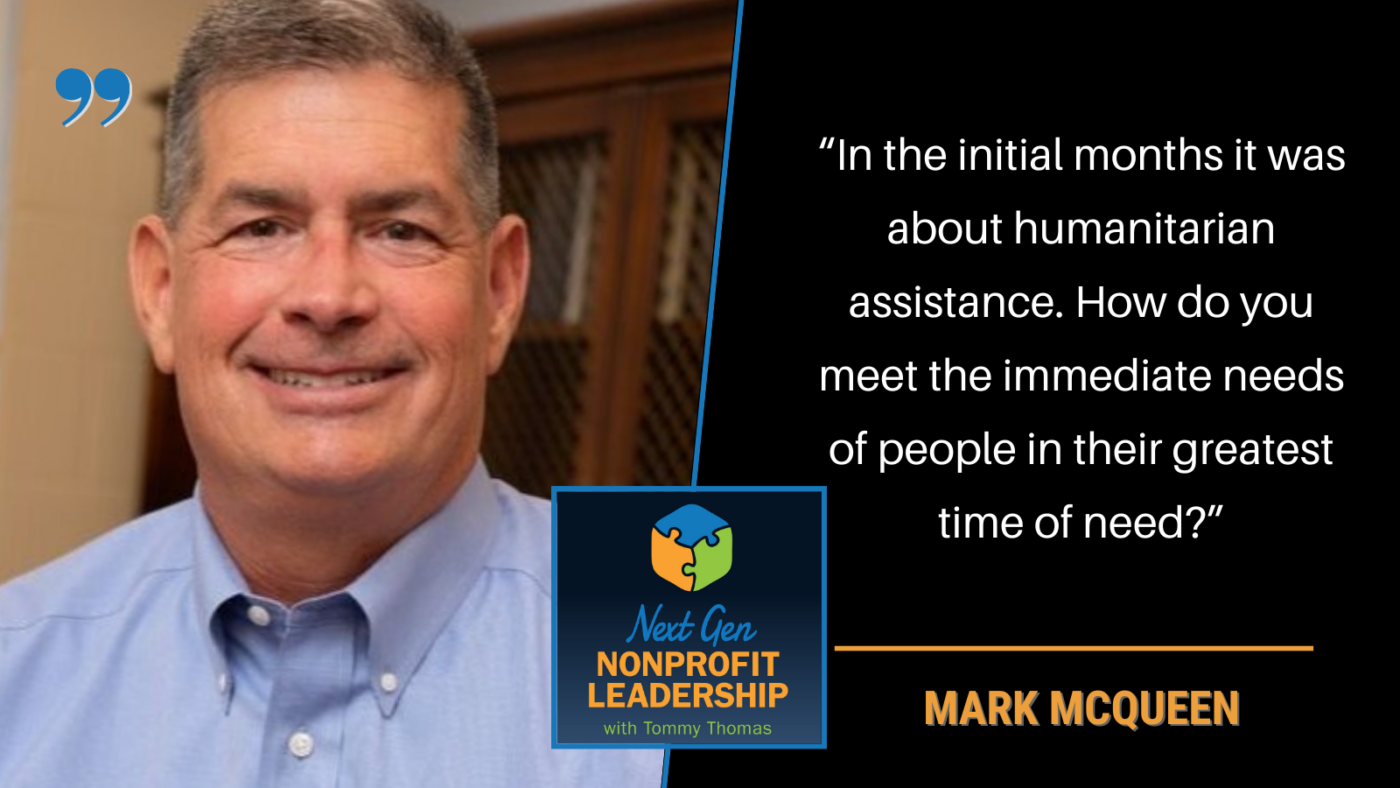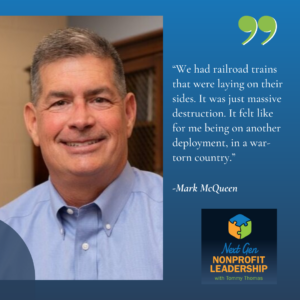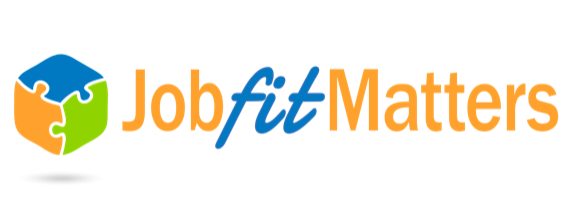
“As we emerged from that storm, we had about a million trees that were uprooted all over the city. And we’re talking large trees, 150-200 year-old pine trees.” -Mark McQueen
 Today, we’re continuing the conversation with Mark McQueen, City Manager, Panama City, Florida. Last week we discussed Mark’s leadership journey from 2nd Lieutenant to Two Star General in the United States Army. This week Mark is talking to us about Hurricane Michael. He had been on the job less than two weeks when Hurricane Michael came ashore in Panama City.
Today, we’re continuing the conversation with Mark McQueen, City Manager, Panama City, Florida. Last week we discussed Mark’s leadership journey from 2nd Lieutenant to Two Star General in the United States Army. This week Mark is talking to us about Hurricane Michael. He had been on the job less than two weeks when Hurricane Michael came ashore in Panama City.
[00:00:09] Tommy Thomas: On October the 10th, 2018, Mark’s life along with countless thousands of lives on the Florida Panhandle was changed forever. Hurricane Michael made landfall!
[00:00:21] Tommy Thomas: Rather than get in the way with too many questions, I’m going to let Mark walk us through Michael’s approach, landfall and recovery.
[00:00:29] Mark McQueen: Thank you Tommy. That certainly was a a fateful time in this community October 10th, 2018. And what was interesting about that on that day is
Nobody really saw it coming.
[00:00:39] Mark McQueen: It the formulation of the storm happened exceptionally rapidly. I can remember it was coming back from Auburn on Sunday afternoon after attending my niece’s wedding on Saturday, on Sunday afternoon, my wife and I were driving back home in on the radio as we were coming through Dothan. We heard, hey, there’s a little tropical wave down in off the coast of the Yucatan.
I was like, okay, that’s interesting. No big deal. Tropical depression, excuse me. Down off the coast of the Yucatan, no big deal. Nothing to really think of. By Monday there was of a little bit of scuttlebutt. It might turn into a hurricane category one. didn’t think anything much of that because, this community’s gone through storms after storm, just like most of Florida has.
[00:01:20] Mark McQueen: Then by Tuesday it was like, okay, this is going to be a hurricane, might be a two, could grow to a three. And so that starts getting folks attention. And I can remember it was that Tuesday morning we had a a commission meeting. It was my very first commission meeting and there it was. Very few people there.
By that morning, . Sure enough, it was growing very rapidly. And the county our county government had declared a state of emergency and evacuation. So it, it had gone from this little tropical depression on a Sunday afternoon by Tuesday morning. It was mandatory evacuations and multiple places within the city and Bay County here in the panhandle of Florida.
Sure enough the next day we had Hurricane Michael hit us and hit us pretty hard. And it was it was mostly a wind event, although there was a significant tropical or excuse me, significant rain and storm surge that took place particularly to the east of the eye of the storm hitting our dear sister, city of Mexico Beach very hard with about. 17- or 18-foot storm surge and wiped off the face of the earth that entire city. And they’re having a, they’re doing a phenomenal job of rebuilding. But the point I guess I’m trying to make is that for, it was like an F five tornado that sat on top of the city for about four hours and we lost all water, all sewer, all power, all communications.
It was a total blackout and that lasted for at least two weeks before we got power restored.
In the interim what was interesting Verizon is the. Predominant cellular carrier in the area. I think they had it somewhere between 85-87% of the market share for this area. And they took it on the chin because they’re a fiber based type of communication system. And we found out that there was a. At and t and some of the others sprint and T-Mobile had some ability to continue to operate, but very few people had those phones. So communicating with citizens, communicating with staff, communicating with each other, and other governments other city governments and county governments was very difficult.
[00:03:29] Mark McQueen: Extremely difficult. And like I said, it was just pitch black at night and no water, no sewer, no nothing. And a as we emerged from that storm we had about a million trees that were da uprooted and all over the city. And we’re talking large trees, a hundred, 150, 2000-year-old pine trees that were here and a hundred year old Oak Century Oaks all over the place.
[00:03:53] Mark McQueen: And we had trains that were laying on their side, railroad trains that were laying on their sides. It was just massive destruction to. . And as I shared earlier that it felt like for me being on another deployment, in a war-torn country, and that was okay. We’ve gotta get on with this.
We’ve got to find a way. First and foremost is meet the needs of our citizens. Safety and security, getting them food and water helping them in their current condition because their homes were decimated. Their lives were totally. Different than they were just four hours earlier.
And that became the focus of what we did to meet the immediate needs. But as you’re meeting the immediate needs of your citizens, the same thing as you’ve got to start charting simultaneously and unparallel, where are you going? What is your future direction for how you’re going to recover the city?
[00:04:45] Mark McQueen: And working out of a very grateful to Verizon that gave us a a emergency trailer that we could work out of. The mayor and I and a couple of the staff, we started banging out what our vision would be for the city is we wanted to emerge from the storm. And so eventually the whole point was to create this strategic campaign strategy for how we were going to rebuild the city while simultaneously meeting the immediate needs of our citizens.
That was very difficult. Very difficult because our city employees were. also harmed by the storm. And so for the city employees that are essential workers, you depend on all of your city employees. Doesn’t matter what your municipality is, but for your water lines, your sewer lines, your police, your fire all of the functions that city government does.
All of those employees were, their homes were destroyed and uprooted and lives were forever changed. And so helping them, To get in temporary lodging so that they could help the citizens was so important so that we could start the recovery efforts and clearly very fortunate Governor Scott at the time. And then within a few weeks we had a statewide election and Governor DeSantis, who is just in a phenomenal job of helping us in recovery from Hurricane Michael. There was an enormous commitment from the state to bring in outside resources to help. So please fire emergency services and then the benevolence of nonprofits organizations, faith-based organizations that would pour it into this community.
[00:06:17] Mark McQueen: To help us in our great time of needs. It was classic neighbors helping neighbors and doing it for the absolute right reasons. Not for attention, not for any notoriety, not for any game. It was just people coming from all over the United States coming to this community to help us in our darkest hour.
And so as a result of that, it was just a, it was really. Transformative time for the city and forever changed the direction that the city was going on going in pre-storm to post storm.
Coming out of the storm, we had the desire to become the premier city in the Panhandle of Florida.
[00:06:56] Mark McQueen: That’s our stated objective. And why not? We’re the largest city between Tallahassee and Pensacola. We have attributes going for us in terms of the industrial base, the intercoastal waterway, the medical capacity, financial institutions, education institutions commerce corridors, and nonetheless are citizens, the great asset of this community and
And so from that we focused on four things, and this is very akin to a lot of the campaign strategy that we used in the military. So, number one, priority, safety and security of our people, their property and the environment. We worked really hard to maintain that safety and security, and we continue to do to.
[00:07:33] Mark McQueen: So to this day, the second thing we focused on is the infrastructure, the key and vital infrastructure, the water, the sewer, storm drain systems, the roadway networks all of those things that are vital to create the connective tissue and support of the essential services in support of our citizens and businesses.
The third thing we’re focusing on is the economy. Making, rebuilding an economy to make it more robust and resilient, to be that creating that irreversible momentum of the economy to continue to grow in. The fourth is gonna be quality of life that which knits people together, enriches people’s lives and all the dimensions of that, whether it’s parks and recreation to marinas, to walkability, bikeability, the arts, the history, the culture houses of worship, all of those things are necessary to set the conditions for becoming the premier city in the panhandle.
[00:08:22] Tommy Thomas: As you think you had to deal with FEMA and the federal and state government drawing back on your military experience what was the lessons that you brought forward as you had to go make your appeal for the funding and probably face rejection? I’m sure two or three times along the way before you begin to get it.
[00:08:42] Mark McQueen: Yeah. The US Congress established through the Stafford Act, the funding mechanism for FEMA to be able to exist, and I will tell you that FEMA is full of great Americans that are committed to helping rebuild communities after an emergency declaration.
What’s interesting, I did learn is that there, there are roughly about 50 to 60 federally declared disasters across the United States and all of its territories every single year. And so, it’s a massive effort that FEMA has to deal with. Every year to support the citizens of this great nation, and they are great citizens.
I think that over time the bureaucracy has just grown to become such a behemoth that it’s not very efficient or effective in getting things done nimbly. and with agility.
You asked what was the difference between this experience and my military experience? And in many cases, you could rebuild foreign countries faster than you can build, rebuild your own community in the United States of America.
And it’s not because of anything else other than the massive amount of bureaucracy and review and process that has to be employed by FEMA to ensure that. correctly and appropriately being good stewards of the federal taxpayer’s dollars. I’m not throwing a rock at them, it’s just, it’s massively bureaucratic, which, here we are four, four years post storm and we’re clearly still in recovery and will be for probably four or five more years to be able to rebuild our city.
[00:10:22] Mark McQueen: And it’s, wildly expensive. But with, again, if the people have no vision, they will perish. And we had to strike that vision. That’s why we’re gonna be the premier city in the Panhandle Florida. And the four lines of efforts of everything we’re doing is pouring into rebuilding our city to be that premier.
[00:10:42] Tommy Thomas: What was the nearest thing in your military experience that, that approximated Michael?
[00:10:47] Mark McQueen: Just been in three areas. Certainly Bosnia. After to implement the Dayton Peace Accords. So you had the warring factions there. Been over to Afghanistan, certainly Iraq very much very akin, very different environment.
But nonetheless, when you have communities that have been destroyed through war. or through natural disasters, the end result is chaos and disruption of life. And there’s a lot of parallels there. Fortunately, bullets aren’t flying here in the United States and certainly not in Panama City.
What we’re doing is we’re fundamentally rebuilding, and that’s a very akin to what I experienced being in those deployments
Additionally, I shared earlier about one of the things we were involved in was humanitarian assistance operations. And that was very formative in my military career and certainly coming out of Hurricane Michael.
Certainly, in the initial months it was about humanitarian assistance. How do you meet the immediate needs of people in their greatest time of need? And how do you help? International organizations now non-profit organizations, private volunteer organizations, faith-based organizations to help them to get resources to people in their time of need.
It’s it was challenging to be sure but clearly the experience in the, my journey, my walk, my experience in the United States Army certainly helped me personally to be aware of some of the issues that may come up and how you can help better meet the needs of your citizens, not only their immediate needs.
[00:12:17] Mark McQueen: Their long-term needs, which would be having a society in a city that would be able to help them to get their kids back in school, help them to be able to get their businesses back up and running. Help them to be able to get their homes reestablished, getting their lives back to a sense of new normal that they would be experiencing.
[00:12:38] Tommy Thomas: So, is there a playbook now or anything that y’all have developed post mihael that that you would turn to? the next time
[00:12:46] Mark McQueen: around. It’s it is funny you asked that, Tommy, because just about five or six weeks ago, our dear neighbors to this in South Florida were hit by Hurricane Ian, an incredible storm that had catastrophic damage to the peninsula of the southern p southwest corner of the state of Florida and certainly the peninsula. And went on up into the car, Georgia and the Carolinas. And the mayor and I were asked to go down to Fort Myers Beach and help that community.
That got hit pretty hard because of Hurricane Ian. And that’s exactly what we did, Tommy, is we took our playbook and said here are lessons that we’ve learned. Here are things that we’re recommending that you look at doing that worked well for us that will help you to set the conditions for your success in recovery.
And we spent a lot of time helping them in those initial weeks and have continued to do so in the in. Lee County area. In fact there was a team from my police department that here we are, like I said, six weeks after the storm, I think it may be seven weeks. And we’re still sending folks down there.
We sent a team of our law enforcement teammates to go on down to Sanibel Island to help them as they opened up the island to allow citizens to start getting on with recovery of their homes and their businesses.
Yeah, there is a playbook and it establishes a framework for how to rebuild after a catastrophic event such as a hurricane.
And not that it’s a cookie cutter, but it sure gives you a framework and some general guidelines of how you may want to consider recovering. And we absolutely wanted to share that with our dear neighbors to the South that suffered so badly from Hurricane Ian.
[00:14:23] Tommy Thomas: I can relate to Mark’s comments about have we, we’re not expecting a huge hurricane. My wife, Nancy and I had moved to the beach a couple of weeks before. For hurricane Michael hit. I remember Nancy coming in one afternoon saying we should evacuate. At first, I didn’t take her very seriously, but as we listened to the radio and talk to people in the area, we decided that was best.
The nearest pet friendly accommodations were at the Hampton Inn in Auburn. So we packed up a few clothes. But Bella and snowball into the truck and drove north. Words can’t describe what we returned to.
The Florida Panhandle is four years into rebuilding from Hurricane Michael. There are still scars from the damage that Michael inflicted on the area, but we are recovering. We owe a huge debt of gratitude to Mark and the other government and civic leaders who stepped up big time in the aftermath of Michael.
Next week we continue the subsidiaries. The Coaches in my Life our guests are
- Dr. Linda Livingstone, the president of Baylor university and
- Shelby Livingstone (her daughter) who is the Assistant Volleyball Coach at Liberty University.
Both women excelled in intercollegiate athletics in their undergraduate days, they will be sharing with us some of the life and leadership lessons they learned from The Coaches in Their Lives.
“We took our playbook and said here are lessons that we’ve learned. Here are things that we’re recommending that you look at doing that worked well for us that will help you to set the conditions for your success in recovery.” -Mark McQueen
Links and Resources
Next Gen Nonprofit Leadership with Tommy Thomas
Connect
Listen to Next Gen Nonprofit Leadership with Tommy Thomas on:
